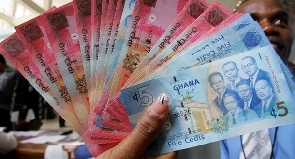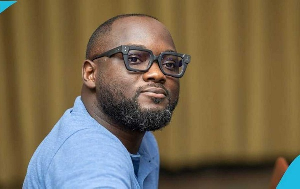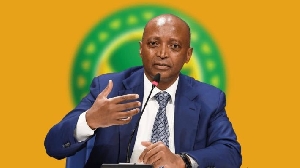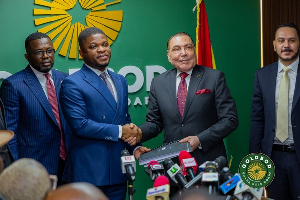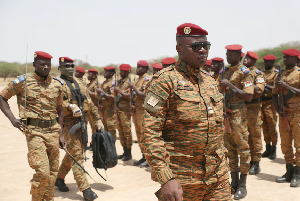Dr. John Kwakye, Director of Research at the Institute of Economic Affairs, has now joined American Professor Steve Hanke in predicting that a Currency Board is the only way to save the Ghana cedis and give it lasting stability. Since President Akufo-Addo seems bent on retaining the services of his cousin the Finance Minister, who has failed to announce any plan for stemming the cedis’s slide, it is worth considering the alternative of tying the cedis to a stronger foreign currency, as it may end up being Ghana’s last and only resort. According to Investopedia, a Currency Board is an extreme form of a pegged exchange rate, in which the Board replaces a country’s Central Bank in managing the money supply. France’s former colonies in West Africa together participate in UEMOA, the West African Economic and Monetary Union. Its central bank, BCEAO, handles monetary policy for the member states. It keeps their common currency, the Franc Communauté Financière Africaine or F CFA, exchanging at a fixed rate against the euro. Aspects of the F CFA arrangement are retrograde, but for instance, French President Macron has already agreed that the fourteen subscribing African countries will no longer be required to deposit half of their currency reserves in the French Treasury. Dr. Kwakye cautions that currency reform must happen in stages. Because most of the other countries in Ghana’s neighborhood, comprising in toto fourteen percent of Africa’s Gross Domestic Product, accept the F CFA peg to the euro, the Ghanaian Government may want to think about following suit, as a transitional measure towards a new and united African sovereign currency eventually divorced from French supervision. Ghana’s friend the United States of America may prefer a peg to the dollar, instead of the euro, but there is a reason to hesitate. In national elections coming up in ten days’ time, the opposition Republican Party is projected to gain control of one or both chambers of the federal legislature. They have announced plans to hold hostage America’s debt ceiling, which Congress must extend periodically, to score political points. The last time Republicans performed this stunt, in 2011, American sovereign debt suffered its first-ever downgrade. The recent experience of the British pound shows how quickly a stable currency can fall when foolish political schemes interfere. If the cedis were tied to the dollar, it would take the same plunge, relative to the world’s other currencies. Whether Ghana’s Central Bank, the BCEAO, or an independent Currency Board pegged the cedis to the euro, it would mark not only the end of the cedis’s plummet, but also a significant step towards African unity. While West African states are rightfully concerned about joining currencies with Nigeria due to its overall bigger size, eighteen percent of African GDP, and the history of its own instability, a decision by African countries in East or Southern Africa to join around the same time would act as a counter-balance. A currency union of low-income countries without a credible nominal anchor such as France’s guarantee is unprecedented. A sovereign monetary union would require a political superstructure to replace the French guarantee, in case of a crisis. The European Union was able to save the euro during the Greek financial meltdown, barely. Big countries like China and India managed to develop on their own. Globalized trade, shipping across oceans and borders, profits from sending part of its cost into the atmosphere, the fossil fuel emissions that cause global warming. Export of manufactured goods drove China’s development, but that model is no longer sustainable. India, which like China has undergone tremendous growth in recent decades, may offer a more apt model of economic development for United Africa. Mahatma Gandhi, famous for spinning the cotton wheel, preached self-reliance. India today is among the countries the furthest along in shifting green-ward and away from fossil fuels. Undeveloped and United Africa, particularly inside the tropics, will have an even easier time of it, since we are already starting nearly from scratch and there is no need to heat buildings during a cold winter. Securing for Ghana a sounder currency may be a first step.

